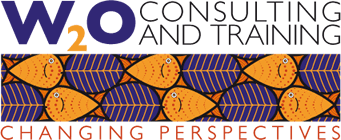A major cause of the UK gender pay gap is that there are fewer women at the top. Many people think that this is a historic problem. They argue that people at the top need experience, and 30 years ago there were just fewer women in work. However, when my clients do a statistical analysis of their workforce, it turns out that women progress slower than men. And, it won’t surprise you that women of Black, Asian, and ethnic minority groups progress even slower. It’s also easy to see – the NHS has 80% women, whereas only 45% of executives are female. So what can you do about that? How can you help women progress at the same rate as men?
The key really is in looking at this as an organisational problem, rather than a problem of women. Some of your key talent isn’t flourishing, then that is an organisational problem. If a flower isn’t doing well, empowering the flower isn’t going to help. You need to change its environment. The same is true for women; if they aren’t flourishing don’t empower the women, but change the environment around them.
There are many reasons women still aren’t progressing, and you can address each of those. You can address work-life issues with maternity support, and flexible working. You can address the culture; what language is used, is everyone included in meetings, and ensure both men and women are sponsored. You can train managers on bias and value of difference and ensure women get strategic career advice. Then there’s still a key thing missing though. If you only focus on policies, culture, and leadership and that is the structure. How do your career pathways work? Do they fit women’s lives, priorities, and expectations as well as they do men’s?
Here are my four key tips on creating gender inclusive career pathways
Let go of fixed timescales
Women are more likely to take career breaks or plateau for a while in their careers whilst their priorities are elsewhere. However, that doesn’t mean they aren’t interested in moving up in later life. However, in many companies, there is an expectation that if you haven’t achieved a certain level after X years of experience, you never will, and you get moved off the succession frameworks and ‘high potential’ lists. Some companies even use ‘up or out’ strategies. This may make sense for men, as after 50 testosterone levels drop in men and they are less likely to be ambitious. However, in women testosterone levels rise after 50, with the opposite impact. At the same time, they may have less caring responsibilities. They would be great assets too, as older leaders bring more life experience. So review how your ways of selecting potential, and allow for different time scales.
Create lattice careers
Women are less likely to follow a linear career path. They are more likely to try working in different departments or even different industries, expanding sideways, rather than upwards. Yet, there’s often a typical route one is supposed to follow to the top and high potential lists and success frameworks reflect that. How can you value breadth of experience in your progression framework?
Don’t measure experience, measure competencies
Considering the two points above, it instantly makes sense that any criteria that look at ‘years of experience in a role’ are more likely to work in favour of those who follow traditional routes and progress at a traditional rate upwards. In addition, younger people can sometimes have more potential and skills than older people. After all, years of experience isn’t synonymous with capability. So it is fairer, and can work in favour of women, to measure potential and competencies for senior roles more objectively.
Rethink experience required for top roles
Women are more likely to work in HR, marketing, PR, and support roles. Whereas for more senior roles typically client-facing, finance and/or international experience is seen as a prerequisite. Re-think those routes to senior roles. How can a senior role be done without that experience? Or with less of that experience? How can you create shorter, high impact experiences in these areas? After all, there are plenty of soft skill courses for leaders. Why not expand your offering on hard skill courses to accommodate for those that need to brush up on those? And, if you really do need that experience to be a leader in your organisation, then how can you make client-facing, finance and international experience more attractive to women?
Once you have re-designed career pathways and you have created gender inclusive career pathways, it won’t have the desired impact if you don’t actually embed them carefully. Make sure it is clear to all which career pathways exist and train managers on giving clear, constructive feedback to both men and women.
You will see that when you create gender inclusive career pathways, it’s not only women that benefit. In fact, introverts may prefer different routes than extraverts, neurodiverse people have their own areas of strength, disabled people benefit from different routes, people who take a career break do and those who have worked in different industries and have retrained (eg military veterans) do.
In fact, we all have different ways of learning and take a different amount of time to learn. So why not review your career pathways? Companies don’t have to be like one-size-fits-all like schools that are bound to government exams. So start now with personalising and individualising your career pathways.
Other articles on progression of women
- What are the barriers for women?
- Debias your advancement process and work allocation
- Gender Smart Succession Planning
- Reduce the gender pay gap, address the lack of senior women
We have a lot of experience supporting organisations with redesigning their succession and promotion processes to ensure that they are gender inclusive. If you would like some support in redesigning your organisation’s processes why not take a look at our Gender Inclusive Succession and Promotion workshop?



Author: Inge Woudstra
Would you like to know more or have a question? I am always happy to have a chat to discuss your needs. Why not drop me a line or pick up the phone? Call me at 01372 457 907 or Just contact me to discuss your requirements by e-mail.I can help you recruit, retain and advance women, and typically work with organisations in tech and engineering.
Or just check out my book 'Be Gender Smart - The Key to Career Success for Women'